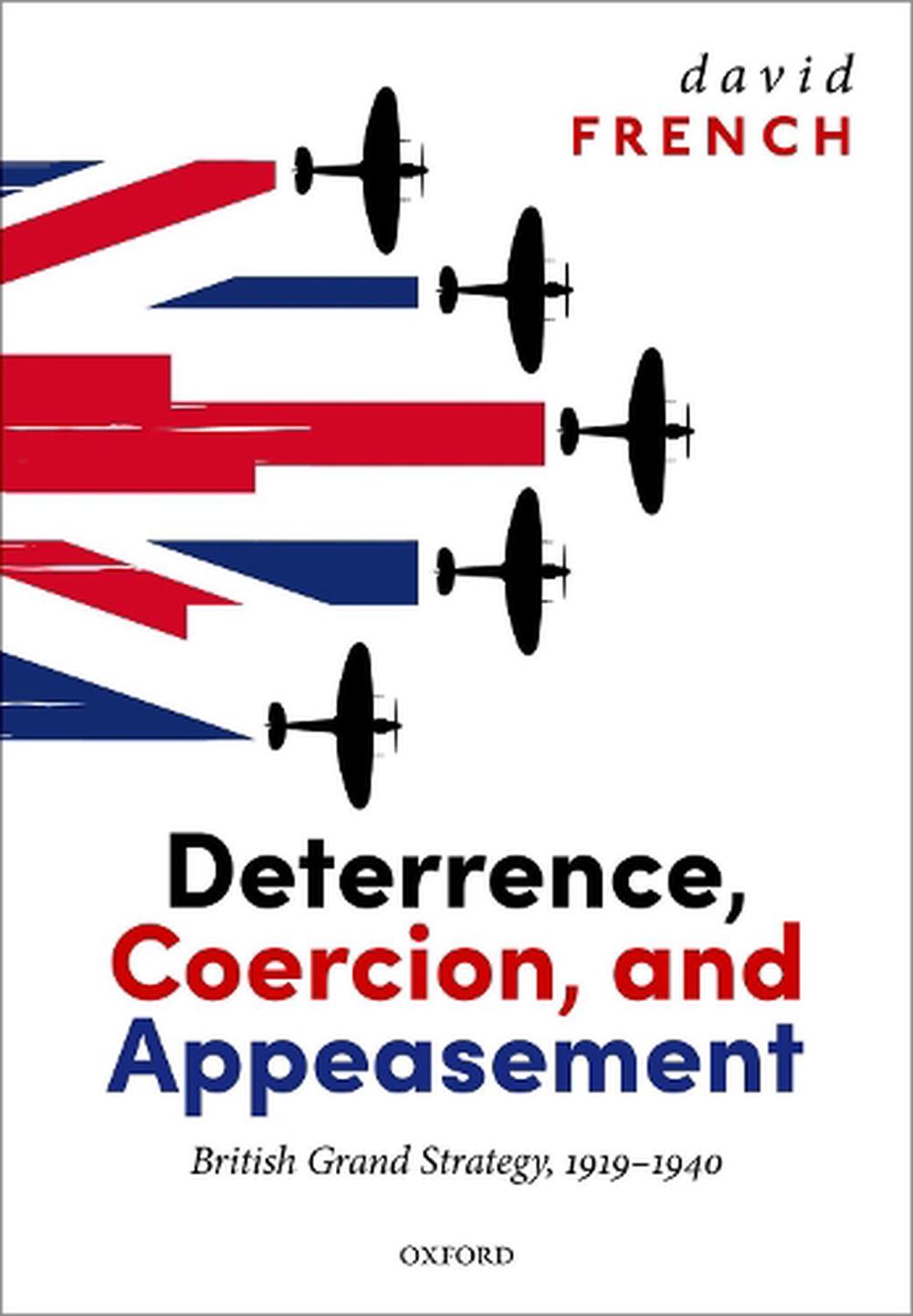
Deterrence, Coercion, and Appeasement
by David French
A compelling and original survey of British grand strategy in the inter-war period, underlining the inexorable relationships between foreign policy, grand strategy, military force, intelligence, finance and not least, domestic politics and public opinion.
Hardcover
Brand New
Publisher Description
Deterrence, Coercion, and Appeasement presents a compelling and original survey of British grand strategy in the inter-war period. Whereas most existing accounts privilege either diplomacy and foreign affairs, intelligence, or military affairs more narrowly, this study underlines the inexorable relationships between foreign policy, grand strategy, military force, intelligence, finance and not least, domestic politics and public opinion. Britain was theworld's only global power in the inter-war period, and it confronted problems on a global scale. Policy-makers sought two goals: peace with security. They did so successfully in the 1920s, partly due tofavourable circumstances that made their task relatively easy, and partly because they understood the strengths and limitations of British power and knew how to wield them. The situation deteriorated rapidly in the 1930s, however, as the international system became increasingly unfavourable to Britain. Policy-makers proved less adept than their predecessors at meeting these new challenges, partly because those challenges were more formidable, but also because they lacked the self-confidence oftheir predecessors, who had held high office during the most difficult years of the First World War and who lacked their understanding of how to wield the lever of international power. The study endsby providing a new and more sophisticated account of how and why Neville Chamberlain appeased the fascist powers in the late 1930s, and why Winston Churchill opposed him and eventually supplanted him in May 1940.
Author Biography
David French was born in Essex in 1954 and educated at the University of York and King's College London. After briefly holding teaching posts as North London Polytechnic, the University of Newcastle upon Tyne, and Herriot-Watt University, he spent twenty-seven years at University College London. The author of nine previous books, he is a former Fellow of the Woodrow Wilson Centre in Washington DC, a recipient of the Arthur Goodzeit Prize of the NewYork Military Affairs Symposium, and a three-times winner of the Templer Medal awarded by the Society for Army Historical Research. He is now Professor Emeritus at UCL, a Fellow of both the Royal Historical Societyand the Historical Association, and a Vice-President of the Army Records Society.
Table of Contents
1: IntroductionPart 1: Making Peace and Managing Peace: 1919-19302: Who made British Policy and Grand Strategy?3: Creating the New World Order, 1919-19214: Reconstructing the New World Order, 1921-19265: Managing the New World Order, 1926-1930Part 2: The Crumbling of the New World Order, 1931-19366: The World Crisis and the National Government, 1931-19337: A new Grand Strategy: the Defence Requirements Committee, 1932-19358: 'I wish I saw a real policy emerging, but frankly I don't': The Baldwin Government, 1935-1937Part 3: The Ascendency of Chamberlain, 1937-19409: The Grand Strategy of Fortress Britain, May 1937-September 193810: 'And I sincerely believe that we have at last opened the way to that general appeasement which alone can save the world from chaos': Appeasement, Containment, and War: October 1938 to September 193911: 'ELthere was no hurry as time was on our side': Chamberlain's WarConclusion
Long Description
Deterrence, Coercion, and Appeasement presents a compelling and original survey of British grand strategy in the inter-war period. Whereas most existing accounts privilege either diplomacy and foreign affairs, intelligence, or military affairs more narrowly, this study underlines the inexorable relationships between foreign policy, grand strategy, military force, intelligence, finance and not least, domestic politics and public opinion. Britain was theworld's only global power in the inter-war period, and it confronted problems on a global scale. Policy-makers sought two goals: peace with security. They did so successfully in the 1920s, partly due to favourable circumstances that made their task relatively easy, and partly because they understood thestrengths and limitations of British power and knew how to wield them. The situation deteriorated rapidly in the 1930s, however, as the international system became increasingly unfavourable to Britain. Policy-makers proved less adept than their predecessors at meeting these new challenges, partly because those challenges were more formidable, but also because they lacked the self-confidence of their predecessors, who had held high office during the most difficult years of the First World Warand who lacked their understanding of how to wield the lever of international power. The study ends by providing a new and more sophisticated account of how and why Neville Chamberlain appeased the fascist powers in the late 1930s, and why Winston Churchill opposed him and eventually supplanted him inMay 1940.
Feature
Presents a compelling and original survey of British grand strategy in the inter-war periodShows why the British were successful in maintaining their global power in the 1920s, and why they failed to meet the threats of the fascist dictators in the 1930sTakes a wide-ranging approach, demonstrating the significance of the relationships between foreign policy, grand strategy, military force, intelligence, finance, domestic politics, and public opinion
Details

